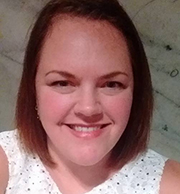
Incorporating Mindfulness and Self-Care Into our Daily Lives
By Sarah Mullard-Dickman | January 2022
 The unique challenges facing educators and students the last couple years have almost everyone feeling on the verge of collapse and wondering what else we can possibly fit on our already overflowing plates. As school counselors, we exhort the importance of mindfulness and self-care as mental wellness tools to our students and colleagues, but do we practice what we preach? It seems that knowing and doing are two separate things.
The unique challenges facing educators and students the last couple years have almost everyone feeling on the verge of collapse and wondering what else we can possibly fit on our already overflowing plates. As school counselors, we exhort the importance of mindfulness and self-care as mental wellness tools to our students and colleagues, but do we practice what we preach? It seems that knowing and doing are two separate things.School counselors are some of the most generous and compassionate people. We are quick to give our time, expertise and talents to help others manage their own challenges, but how often do we practice our own mindfulness and self-care? Prioritizing our wellness is easier when we build mindfulness and self-care into our daily lives, making these a healthy habit instead of one more thing to do on our already never-ending task list.
Finding small ways to practice mindful moments or self-care is more doable for most than carving out, say, an hour a day to practice yoga. Do you start your day with a cup of coffee or tea? Is it possible to get ready just a bit earlier so you can sit and really savor that coffee or tea rather than gulping it down as you rush out the door? Or, perhaps on your commute to work you could listen to an uplifting podcast or some favorite music? If you usually work through your lunch break, try getting out to enjoy lunchtime with colleagues or go outside for some fresh air. These small moments of mindfulness and self-care add up in a big way to improve our emotional wellness and resiliency.
We are not the only ones who urgently need to integrate mindfulness and self-care into our daily lives. I don’t need to tell you that students are in desperate need of tools to handle their stress levels. I work with juniors and seniors at a career and technical education (CTE) center and they are eager to learn healthy ways to unwind. My colleague and I began earnestly teaching mindfulness and self-care to our students last fall when we were still remote. Our perception data showed students reported lower levels of stress when we incorporated this topic into our classrooms. This year, we’ve been able to continue this work in person and it’s become the culture of our building to embrace wellness strategies.
Surrounding ourselves with nature can be a wonderful way to practice the mindfulness of zeroing in on our five senses. Fresh air clears the mind and invigorates the body. The instructors in my building have begun taking students outside for breaks, to photograph nature, or for short walks together. Our students have appreciated these opportunities and this is something that you might want to consider for your students.
Asking students to identify their strengths and practice wellness offers a layer of protection against the stressors of learning and living during a pandemic. When we model wellness techniques, we show students the benefits of focusing on their mental health. We are all in this together and, together, we find comfort, strength and resiliency.
Contact Sarah Mullard-Dickman, school counselor at Calhoun Area Career Center (CACC) and MSCA executive director, at MSCA1964@gmail.com.